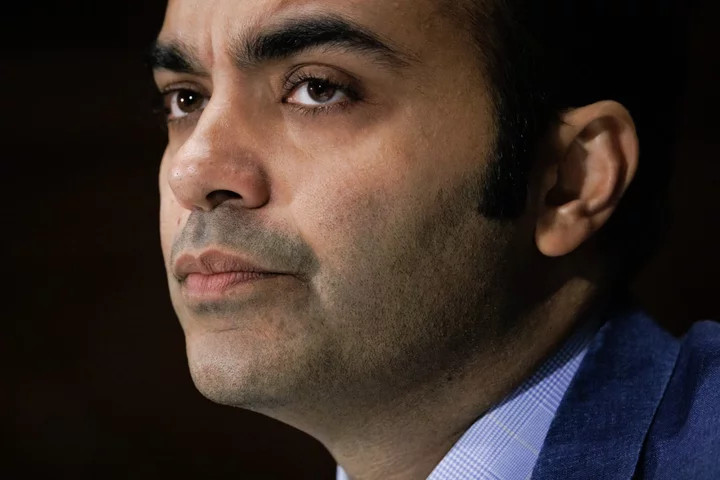Mark Zuckerberg’s big bet on the metaverse has now lost $40 billion – and the company intends to lose even more. The huge figures were revealed as part of Meta’s latest results, which generally showed a strong rise in advertising revenue. But they also showed an increase in expenses at the company, with the development not only of the metaverse but also artificial intelligence and legal fees. Meta has been dramatically cutting costs and laying off staff. But at the same time it has been spending heavily on some projects, such as the metaverse, in the face of criticism from those who suggest that the bet is unlikely to pay off. That work on the metaverse is done by the company’s Reality Labs unit, which is responsible for developing technology like augmented reality glasses. It reported sales of $276 million, down from $452 million in the same quarter last year. The unit lost $3.7 billion in the second quarter, putting it on track to have far higher costs than the $5 billion annual target set out in a widely circulated investor note in the fall. The unit has lost more than $40 billion since 2021, including $13.7 billion last year. Meta said it expected Reality Labs operating losses to “increase meaningfully” in 2024 as the company continued to invest in augmented and virtual reality and “scale our ecosystem.” Zuckerberg had previously said Meta would “pace” investments in the division after 2023. He told investors he understood why many of them would feel discomfort over such a long-term bet. But the positive results across the company pushed Meta shares up 7.5 per cent. “We continue to see strong engagement across our apps and we have the most exciting roadmap I’ve seen in a while with Llama 2, Threads, Reels, new AI products in the pipeline, and the launch of Quest 3 this fall,” Meta chief executive Mark Zuckerberg said. Meta’s second-quarter revenue grew 11% to $32 billion in the quarter ended June 30, compared with analysts’ average estimate of $31.12 billion. Ad revenue rose 12% in the quarter, faster than growth at Google, where ad revenue rose 3%. Adjusted earnings per share of $2.98 topped Wall Street targets of $2.91, according to data from Refinitiv. The social media giant has been climbing back from a bruising 2022, buoyed by hype around emerging AI technology and an austerity drive in which it has shed around 21,000 employees since last fall. The company’s shares have more than doubled in value this year as a result. Advertisers are reinforcing those gains by pumping money into digital ads again after months of muted spending, heartened by signs that the economy may overcome a bout of high inflation without suffering a major meltdown. Brands are hedging their bets, however, and sticking with tried and true platforms. That helps Meta and Alphabet while punishing smaller players like Snap, which reported disappointing sales on Tuesday. Meta’s revenue forecast did not specify whether the figure includes any sales that might come from the recently launched Threads app, which does not yet have ads. Additional reporting by Reuters Read More Elon Musk’s ‘X’ is already trademarked by Mark Zuckerberg How Mark Zuckerberg’s new ChatGPT rival could lead to ‘obscene’ AI Meta unveils its ChatGPT rival Llama Here’s how to claim your share of $725m settlement in Facebook’s privacy lawsuit Elon Musk forces firms to pay X $1,000 to keep gold ticks Slack has stopped working
Mark Zuckerberg’s big bet on the metaverse has now lost $40 billion – and the company intends to lose even more.
The huge figures were revealed as part of Meta’s latest results, which generally showed a strong rise in advertising revenue. But they also showed an increase in expenses at the company, with the development not only of the metaverse but also artificial intelligence and legal fees.
Meta has been dramatically cutting costs and laying off staff. But at the same time it has been spending heavily on some projects, such as the metaverse, in the face of criticism from those who suggest that the bet is unlikely to pay off.
That work on the metaverse is done by the company’s Reality Labs unit, which is responsible for developing technology like augmented reality glasses. It reported sales of $276 million, down from $452 million in the same quarter last year.
The unit lost $3.7 billion in the second quarter, putting it on track to have far higher costs than the $5 billion annual target set out in a widely circulated investor note in the fall.
The unit has lost more than $40 billion since 2021, including $13.7 billion last year.
Meta said it expected Reality Labs operating losses to “increase meaningfully” in 2024 as the company continued to invest in augmented and virtual reality and “scale our ecosystem.” Zuckerberg had previously said Meta would “pace” investments in the division after 2023.
He told investors he understood why many of them would feel discomfort over such a long-term bet.
But the positive results across the company pushed Meta shares up 7.5 per cent.
“We continue to see strong engagement across our apps and we have the most exciting roadmap I’ve seen in a while with Llama 2, Threads, Reels, new AI products in the pipeline, and the launch of Quest 3 this fall,” Meta chief executive Mark Zuckerberg said.
Meta’s second-quarter revenue grew 11% to $32 billion in the quarter ended June 30, compared with analysts’ average estimate of $31.12 billion.
Ad revenue rose 12% in the quarter, faster than growth at Google, where ad revenue rose 3%. Adjusted earnings per share of $2.98 topped Wall Street targets of $2.91, according to data from Refinitiv.
The social media giant has been climbing back from a bruising 2022, buoyed by hype around emerging AI technology and an austerity drive in which it has shed around 21,000 employees since last fall.
The company’s shares have more than doubled in value this year as a result.
Advertisers are reinforcing those gains by pumping money into digital ads again after months of muted spending, heartened by signs that the economy may overcome a bout of high inflation without suffering a major meltdown.
Brands are hedging their bets, however, and sticking with tried and true platforms. That helps Meta and Alphabet while punishing smaller players like Snap, which reported disappointing sales on Tuesday.
Meta’s revenue forecast did not specify whether the figure includes any sales that might come from the recently launched Threads app, which does not yet have ads.
Additional reporting by Reuters
Read More
Elon Musk’s ‘X’ is already trademarked by Mark Zuckerberg
How Mark Zuckerberg’s new ChatGPT rival could lead to ‘obscene’ AI
Meta unveils its ChatGPT rival Llama
Here’s how to claim your share of $725m settlement in Facebook’s privacy lawsuit
Elon Musk forces firms to pay X $1,000 to keep gold ticks
Slack has stopped working









